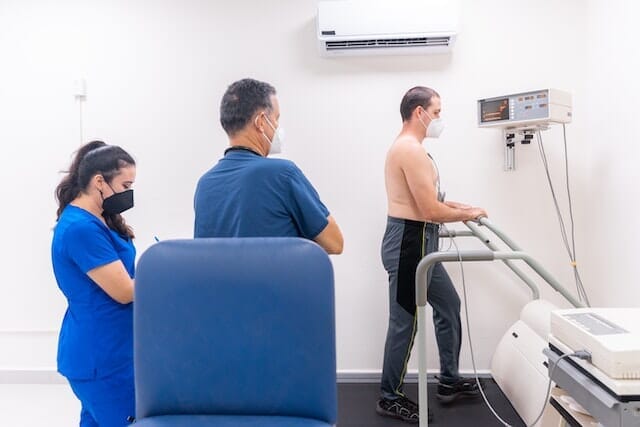
When should I get a Heart Blockage Test Done?
Time to read 4 min
Time to read 4 min
There are several instances in which you should get a heart blockage test done, especially to understand your risk of coronary artery disease. Checking your blood pressure, blood vessels, coronary arteries, and other parts of your circulatory system should also be done after you cross the age of 60 years.
A heart blockage test is also one of the preliminary ways to diagnose coronary artery disease in individuals. You can also get a complete TMT stress test, blood flow analysis, and lipid panel blood tests to determine your risk factor.
If you are experiencing palpitations or chest pain at any time, you should get a complete heart profile done to rule out heart disease. Your cardiologist may ask you to get a nuclear stress test, or a magnetic resonance imaging MRI scan of your heart if you also have a prior history of a heart attack.
These symptoms may also escalate based on your prior history of heart disease. Your risk factor may go up significantly if your symptoms are also increasing with time. You can get a complete heart check-up done to ensure that you're protected.
Individuals with high blood pressure or a history of heart issues should get a heart blockage test done regularly. If you also have a poor lifestyle or dietary options, then you should get regular heart tests done as well.
A heart blockage test will also be able to find plaque building up in the blood vessel, as well as any potential issues with blood supply in the body. You should get regular tests done after the age of 60, as well as if you are already experiencing some of the main symptoms.
If you have a family history of heart and coronary arteries diseases then getting regular blockages and scan tests should be important. The genetic and lifestyle related components of heart disease are widely studied, which is why you should get tested regularly.
You can also check the effectiveness of your treatment, medication, or lifestyle changes on the reduction of plaque or damage to sites. You can understand whether your family history is also increasing your risk for heart disease as well.
If you are already managing a heart condition, then getting regular heart blockage tests and scans will be important. This is so that any risk elevation can be checked with the help of these tests. You can also check the effectiveness of your medication and treatment.
You can also get to know whether another condition, such as diabetes or kidney disease, is having an impact on your heart function. Any damage to the lungs can also impact heart function, which is why getting tested regularly is key.
If you are experiencing the symptoms of a heart blockage and have a family history of the condition, then you need to ensure that you're getting all these tests done.
The exercise stress test or treadmill test will measure the performance of the heart muscle as a part of the circulatory system via exercise.
An MRI scan is vital to detect blockages in the coronary arteries and the heart. Your cardiologist may recommend one when you are experiencing pain.
Any irregulates in the heart rate, based on blockages or other reasons, can be detected with the help of an ECG.
A 2D echo is one of the best tests available to get a visual map of the heart. Any abnormalities, aberrations, and damage can be checked with the help of an Echo test.
To test the narrowness of your coronary arteries, a dynamic X-ray is conducted in the form of a coronary angiogram.
A complete heart lipid panel and blood test is also recommended when you are experiencing symptoms of cardiac disease.
Chest pain that is chronic and continuous is a serious sign that you may have a heart condition.
You can also experience heart palpitations, which may feel like a panic attack, requiring immediate attention and medication.
A lack of effective circulation can lead to numbness in the body. You can experience this during several times of the day.
You may experience shortness of breath, which is one of the major signs of heart problems.
If you have arrhythmia or irregular heartbeat, then getting a heart blockage test will be vital.
You can get the heart tests in India through MyDiagnostics.
You can get your report within the same day.
The cost of the 2D scan, TMT test, and ECG will be INR 2500.
*Medical Disclaimer - The following information is for educational purposes only. No information provided on this website, including text, graphic, and images, are intended as substitutes for professional medical advice. Please consult with your doctor about specific medical advice pertaining to your condition(s).

